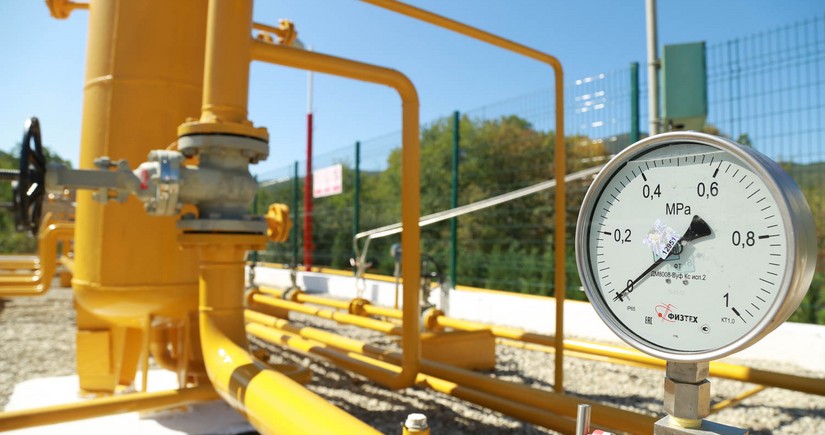TAP AG working on options to expand gas pipeline to 20 BCM per year
- 19 May, 2025
- 13:08

Increasing the capacity of the Trans Adriatic Pipeline (TAP) to 20 billion cubic meters of gas per year will require the construction of two new compressor stations in Greece and Albania, as well as the installation of additional units at existing stations in these countries, Report informs referring to the pipeline company TAP AG.
"TAP’s initial forward firm long-term capacity, approximately 10 bcm per year (bcm/a), has been allocated to shippers based on long-term gas transportation contracts signed in 2013 for 25 years, which were necessary to underpin the investments at the time. However, TAP can further contribute to Europe’s security of energy supply and decarbonisation objectives progressively by expanding the pipeline’s current capacity. TAP’s expanded capacity is offered to the market through regular Market Tests organised every odd year. An expansion step is triggered, provided there is interest from the market and the aggregated capacity request makes the investment economically viable.
The 2021 Market Test, which was completed in January 2024, resulted in binding commitments which will add an extra 1.2 bcm/a to the pipeline capacity by January 1, 2026. TAP is now advancing the necessary works to make this incremental capacity available in line with the commitments received. This includes adding a new compressor unit (approximately 15 MW) to the existing compressor station in Kipoi, located in the Alexandroupolis area, near the Greek border with Türkiye, and upgrading the facilities there. The completion of these works allows to achieve our goal of making the additional long-term capacity available at the start of 2026," the company noted.
"The first level of expansion could pave the way for further expansions. These could be implemented in stages through participation in future Market Tests. The 2023 Market Test is currently ongoing.
The potential and scale of any further expansion stage will be determined by the results of the Market Tests. TAP can almost double its capacity when a Market Test results in a positive Economic Viability Test with an aggregated request of the relevant capacity. The project to double TAP capacity would include adding two new compressor stations: one in Greece and one in Albania, together with installing additional compressor units at the existing stations in Greece and Albania, and undertaking minor modifications at the pipeline receiving terminal in Italy.
To date, TAP has progressed and continues to develop further activities and studies for meeting the anticipated market demand. For instance, we are working on the conceptual design of the compressor stations for various expansion scenarios and we are also developing concepts for future expansion cases to be based on electrically driven compressor units only, to contribute to our roadmap to long term energy transition."
The Trans Adriatic Pipeline, the final component of the Southern Gas Corridor designed to transport Azerbaijani gas from the Caspian to Europe, was put into commercial operation on November 15, 2020. The 878 km long gas pipeline runs through Greece, Albania, the Adriatic Sea and Italy. Azerbaijan began exporting gas to Europe on December 31, 2020.
According to the agreement between Azerbaijan and the EU, Azerbaijani gas supplies should reach at least 16 billion cubic meters per year by 2027. As part of the first stage of the gas pipeline expansion, Italy will receive 1 billion cubic meters of Azerbaijani gas, and Albania will receive 200 million cubic meters. So far, 45.6 billion cubic meters of gas from Azerbaijan have been supplied to Europe via TAP.
